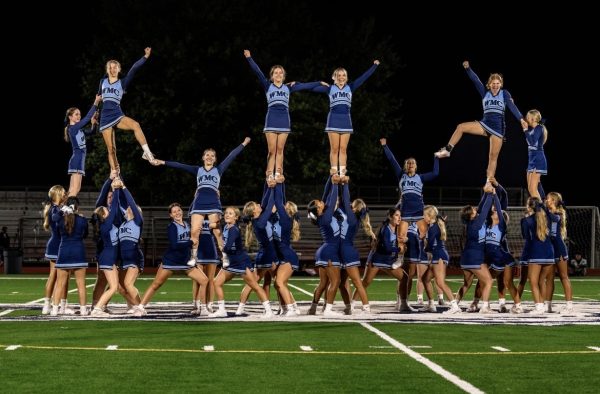Small versus Big Schools: College

March 6, 2017
Everyone is different, especially when it comes to choosing the place they are going to live for the next four years. The college process is filled with excitement, stress, preparation and complexity, but when it comes down to it, you choose. The main difference that helps students narrow down their list of schools they’re interested in is size. Either small, medium-sized, or big. More times than not, students find themselves pretty comfortable with knowing whether they want to attend a big or small school. This is because big and small schools are so different in comparison to one another, and here’s why.
There are many advantages to attending a small to medium sized school. For one thing, you have smaller classes, which allows you to build a relationship with not only your teacher, but your classmates as well. This is an advantage because if you create a positive relationship with your teacher, they may be more lenient with, say a due date on an assignment, for example.

Senior Kristen Davies agrees, “I think going to a smaller college would be amazing because of the close relationships I would form with my teachers and even friends!”
In addition to this, professors at smaller schools have less papers to grade, and therefore have more time for you and will give feedback on your work so you can get a better grade.
Usnews.com says that at small colleges you will be spared the endless lines at registration, the hand-to-hand combat to get into closed classes, and the sprinting between innumerable offices to try to get your simplest questions answered.
This also goes hand-in-hand with a strong advising system and a strong sense of community. With their community, students get to see sporting events and may even personally know some people on the team.
Another advantage to attending smaller schools is that all your classes, clubs, activities and events are a decent walking distance from one another, you don’t have to take a bus or drive there, you can simply walk, which is also very beneficial to your health.
Although this may not pertain to every college that classifies as “small,” many colleges that are smaller do offer more financial aid, which helps lost of students stay out of doubt, and attend the school of their dreams with less stress over their head.
While there do appear to be many advantages to smaller schools, larger schools offer many advantages that are hard for smaller schools to provide. Larger schools typically have a better environment for athletics and the sports programs are usually better and well funded. Even if you do not want to participate in athletics at a college, attending your school’s games in person, especially against rivals is a thrilling experience. There is so much pride showcased at these events as up to 110,000 people stack into a stadium each week to see their school play at these larger schools such as Michigan, Penn State, Alabama, and many more.
The pride does not end after graduation however, as many alumni stay significantly more connected with their larger schools both through continued interest in sports or staying connected with a large alumni base. It is a special feeling to pass through any given store and share a common bond with a stranger. This larger alumni base also helps when searching for a job, as it creates connections with managers or employers who often return to school to recruit graduates of their own institution.
Also while smaller schools may specialize in certain fields, larger public universities possess a large variety of majors for the many different students that will attend. As many students are undecided of their major before entering college, it is a great benefit to attend a large school that has every major desirable.
Additionally,
Senior Cameron Beltram, who will be attending a very large school in Penn State next year, says, “I just think larger schools are more fun. There are more people and more stuff to do.” Cameron’s opinion is held by many who would like to have the opportunity to meet new people everyday, as compared to some who would prefer sticking to the same friend group.
Each side has their own unique perks, but it all depends on preference. For example, some students prefer larger classes, so what may be an advantage to one student, may be a disadvantage to another. Additionally, some students may not care if their school is on TV, if they get to see the game in person that’s good enough. So, do you see yourself at a bigger or smaller school?
Be aware that small colleges do not have the research facilities of large universities. If you’re hoping to be a research assistant, find out what kind of work and facilities are available before you apply.
Image Source:http://collegecures.com/wp-content/uploads/2011/01/small-vs-large.jpg











